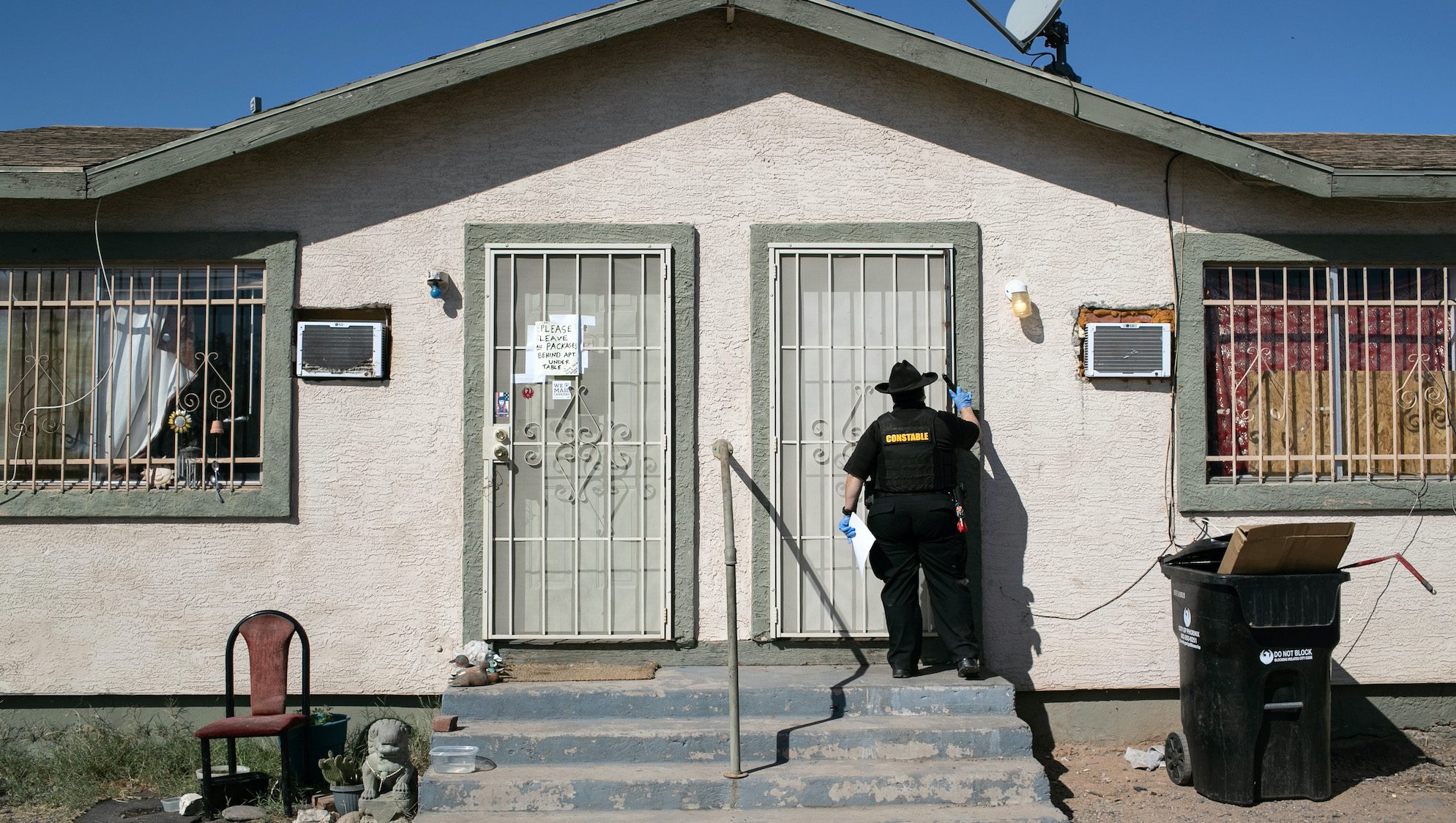
A federal judge overturned the national eviction ban on Wednesday that has prevented landlords from turning out tenants struggling to pay their rent as a result of the COVID-19 pandemic. Hours later, the Department of Justice announced it would appeal the ruling.
The ruling, if it stands, could affect millions of Americans who fell behind on their rent after losing jobs, side gigs, and working hours over the past year. Advocates fear it could trigger a wave of homelessness during the still-ongoing health crisis.
The original eviction freeze was put in place by the Centers for Disease Control and Protection under President Donald Trump last March, then extended by President Joe Biden to prevent people from being tossed out of their homes during a pandemic. The moratorium’s latest extension had been slated to expire at the end of June.
“The CDC moratorium is critical for renters and for the economy,” says Davida Fingers, a law professor at Loyola University in New Orleans. “The CDC has the authority and duty to promote public health measures and protect the public during the pandemic.”
However, U.S. District Court Judge Dabney Friedrich ruled the CDC overstepped its powers when it put the moratorium in place.
“It is the role of the political branches, and not the courts, to assess the merits of policy measures designed to combat the spread of disease, even during a global pandemic,” the ruling stated. “The question for the Court is a narrow one: Does the Public Health Service Act grant the CDC the legal authority to impose a nationwide eviction moratorium? It does not.”
In November, the Alabama Association of Realtors and Georgia real estate agents filed a lawsuit challenging the eviction freeze. In it, landlords claimed the moratorium put an undue financial burden on them to continue maintaining the buildings and, in some cases, making mortgage payments even without any rent coming in to cover it.
Landlord groups have advocated for the government to provide rental assistance to struggling tenants instead of an eviction freeze. Congress has approved around $45 billion in rental assistance that is currently being disbursed.
“Nationwide, long-term eviction moratoriums only serve to place insurmountable levels of debt on households,” said the National Multifamily Housing Council in a statement. The landlord-rights group represents landlords, apartment developers, and managers. Such moratoriums “jeopardize the stability of housing providers who have been damaged by revenue losses over the past year and who may be struggling to pay their mortgages, finance property operations and meet their own financial obligations.”
Ironically, earlier this week, the Biden administration sent letters to dozens of large landlords and debt collectors informing them that they needed to either abide by the moratorium—or be hit with the consequences.
However, there is still some ambiguity surrounding what happens next, as the Department of Justice plans to appeal. This week’s ruling isn’t expected to affect state and local eviction moratoriums.
“There are now numerous conflicting court rulings at the district court level, with several judges ruling in favor of the moratorium and several ruling against,” Diane Yentel, president and CEO of the National Low Income Housing Coalition, said in a statement. “While this latest ruling is written more starkly than previous ones, it likely has equally limited application impacting only the plaintiffs who brought the case or, at most, renters in the district court’s jurisdiction.”
The post Federal Judge Overturns Eviction Ban. What Happens to Renters Now? appeared first on Real Estate News & Insights | realtor.com®.
